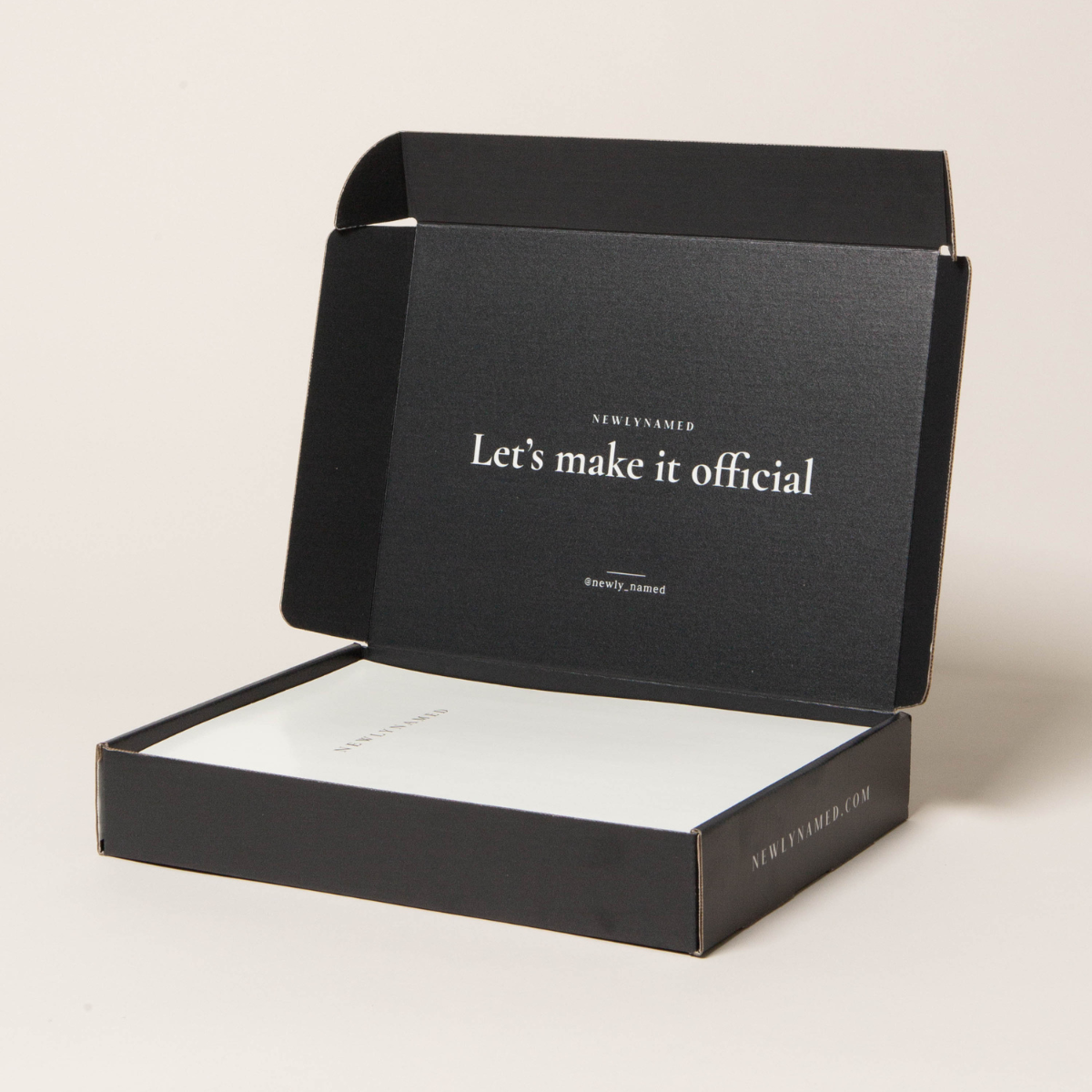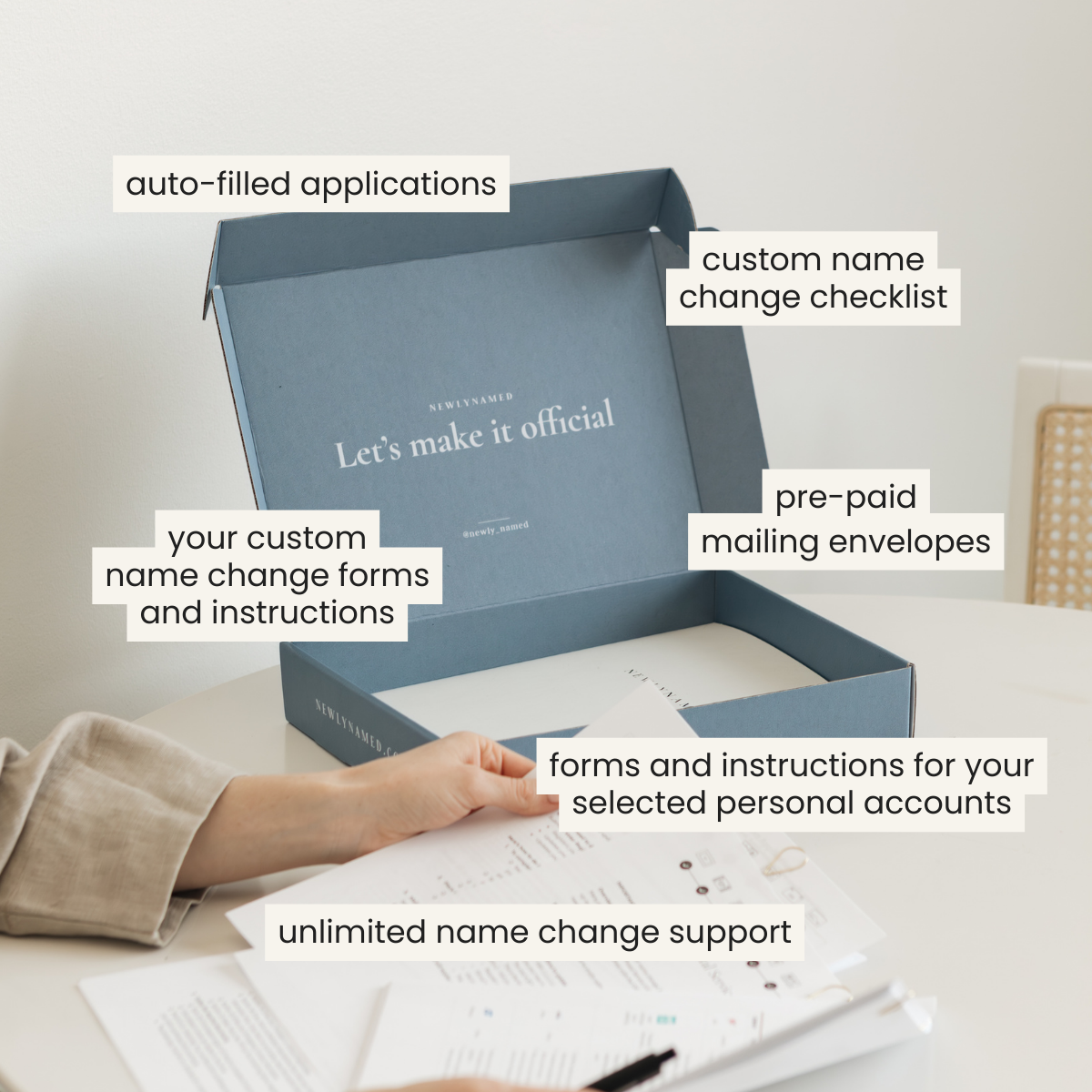Name In Change Illinois
At NewlyNamed, we’ve made it our mission to simplify this process for over 400,000 people just like you. Whether you’re a newlywed eager to embrace a new chapter or someone reclaiming their identity after a life change, we’ve got your back.
Understanding The Legal Process For Changing Your Name In Illinois
File A Petition
First, you’ll need to file a petition in the circuit court of the county where you live. This isn’t just a formality; it’s the cornerstone of the legal process. You’re essentially asking a judge to sign off on your new identity, so you’ve got to make your case. The petition requires basic info like your current name, the name you want, and the reason for the change. Illinois law doesn’t mess around with residency either; you must have lived in the state for at least six months before filing. If you’re a non-U.S. citizen living here, that’s fine, as long as you meet the residency requirement.
Issue A Public Notice
Next comes the public notice hurdle. Illinois requires you to publish your intent to change your name in a local newspaper for three consecutive weeks. Think of it as the state’s way of saying, “Hey, anyone got a problem with this?” It’s a safeguard against fraud or dodging debts, but it can feel like an invasion of privacy. If you’re concerned about safety—say, due to a past abusive relationship—you can request a waiver from the court to skip this step, though you’ll need to prove the risk.
Attend A Court Hearing
Once the notice period is up (or waived), you’ll attend a court hearing. Don’t let the word “hearing” intimidate you; it’s often a quick, straightforward affair if your paperwork is in order. The judge will review your petition, ask a few questions, and, assuming there are no objections or red flags, grant your request. You’ll walk out with a court order—a golden ticket to your new name.
Update Your Name With Federal And State Agencies
But here’s the catch: the court order is just the beginning. You’ve still got to update your name with federal and state agencies like Social Security, the DMV, and the IRS, not to mention personal accounts like banks or loyalty programs. Each entity has its own forms, fees, and timelines, and missing a step can leave you in a bureaucratic limbo where half your ID says one name and half says another. It’s a headache waiting to happen if you don’t stay organized.
Eligibility Requirements For A Name Change In Illinois
- Need To Be An Illinois Resident: First off, you’ve got to be a resident of Illinois. Typically, you’ll need to have been a resident for at least six months in the county where you’re filing.
- Need A Valid Reason: Next, you need a valid reason for the change. The good news? Illinois is pretty flexible on this front. Getting married or divorced are the big ones.
- Age Matters: Age matters too. If you’re 18 or older, you can file for yourself. Under 18? You’ll need a parent or guardian to step in and file on your behalf, and the court will look at what’s in the minor’s best interest.
- Showing Criminal Records: If you’ve got a criminal record, heads up—Illinois law requires you to disclose any felony convictions. The court might dig a little deeper to make sure your name change isn’t tied to anything sketchy.
- File In The Circuit Court Of Your Home County: One last thing: you’ll need to file in the circuit court of the county where you live. That’s where the paperwork magic happens, and you’ll likely have to publish a notice of your name change in a local newspaper for a few weeks.

Attending A Name Change Hearing: What To Expect
So, you’ve filed your petition, dotted every ‘I’ and crossed every ‘T’, and now the day of reckoning looms on your calendar: the name change hearing. Here is what to expect during your hearing:
A Name Change Hearing Generally Goes Quickly
First off, know that a name change hearing in Illinois is usually a quick, procedural affair, often lasting less than 15 minutes unless there’s a complication. You’ll likely be in a circuit court, standing before a judge whose job is to ensure your request meets the legal criteria.
Follow Illinois Name Change Procedures
Before you even get to the hearing, make sure you’ve followed Illinois’ rules to the letter. That means publishing your intent to change your name in a local newspaper for three consecutive weeks, at least six weeks before your court date, unless you’ve been granted a waiver due to safety concerns. Bring proof of that publication to court—it’s non-negotiable.
The Granting Of Your Name Change
If there are no objections and your paperwork checks out, the judge will typically grant the change on the spot and issue a court order. That’s your golden ticket, the document you’ll need to update everything from your driver’s license to your Social Security card. If there’s a hiccup—say, someone objects or the judge has concerns—you might need to reschedule or provide more evidence. It’s rare, but it happens, so keep your cool and follow their guidance.
Changing Your Name After Marriage In Illinois
Here’s some guidance on how to change your name in Illinois after marriage:
- Start with Your Marriage Certificate: First, you’ll need to start with your marriage certificate. Once you’ve got that certified copy in hand—usually available through the county clerk’s office where you tied the knot—you’re ready to roll. Head to the Social Security Administration (SSA) to update your name on your Social Security card. This step is non-negotiable; it’s the foundation for everything else, from your driver’s license to your tax records. You’ll need to fill out Form SS-5, provide your marriage certificate, and show proof of identity (think current ID or passport). Pro tip: check the SSA website for local office hours or mail-in options to avoid a long wait.
- Tackle Your Driver’s License: Next up, tackle your Illinois driver’s license or state ID. The Illinois Secretary of State’s office requires you to show up in person at a Driver Services facility within 30 days of your name change. Bring your updated Social Security card (or proof you’ve applied for one), your marriage certificate, and your current license. There’s a small fee, but it’s a quick process if you’ve got your ducks in a row. While you’re at it, don’t forget to update your vehicle registration if your name’s on the title.
- Passports, Tax Documents, and Personal Accounts: Next, visit the U.S. Passport Office if you’ve got travel plans—newlyweds often do—and file the necessary forms to reflect your new name. Then, loop back to the IRS to ensure your tax records match up; a mismatch here can cause headaches come filing season. Beyond the government stuff, you’ve got personal accounts to update—banks, credit cards, utility bills, and even loyalty programs.
Notifying Banks And Financial Institutions
Getting ahead of this is key when it comes to notifying banks and financial institutions of your name change. Miss a step here, and you’re risking everything from delayed transactions to full-on account freezes.
Here’s what you can do to get ahead:
- Make A List of Your Accounts: Start by making a list of every bank account, credit card, loan, and investment account tied to your old name. Contact each institution—most will have a specific process for name changes, often requiring a copy of your marriage certificate, divorce decree, or court order, along with your updated ID. Some banks let you kick things off online or over the phone, but others might insist on an in-person visit to a branch. Pro tip: call ahead to confirm their policy so you’re not making a wasted trip.
- Update Automatic Payments: While you’re at it, update any automatic payments or direct deposits linked to these accounts. Payroll, subscriptions, utility bills—if they’re tied to your old name or card details, you’ll want to refresh those ASAP to avoid missed payments or service interruptions.
Changing Your Name On Utilities And Personal Accounts
- Start With The Essentials: To start with the essentials, begin with updating your name on your utilities. Think electric, water, gas, internet—basically anything tied to your address. Most companies will let you update your name over the phone or online, but they’ll often ask for a copy of your marriage certificate, divorce decree, or court order as proof. Have a digital scan ready to upload or email; it’s faster than mailing paper copies and waiting for the gears to turn.
- Keeping Tabs of Subscriptions, Banks, and Credit Cards: Then there’s the personal stuff—banks, credit cards, subscriptions, loyalty programs. For banks and credit cards, you might need to visit a branch in person or mail in documentation, though some now accept secure online uploads. Subscriptions and loyalty programs are usually simpler; a quick login and a few clicks in your account settings often do the trick.
- Keep Notes: Keep a record of who you’ve contacted, when, and what they required. If something gets stuck, follow up—don’t let it linger. You’ve already taken the big step of legally changing your name; these last few hurdles are just the cleanup. Stick with it, and you’ll have everything aligned before you know it.
Read also:
What are the legal grounds for a name change in Illinois?
Most commonly, folks change their name after marriage or divorce, but you can also request a change for personal reasons, like aligning with your gender identity or simply wanting a fresh start. If you’re not tied to a life event like marriage, you’ll need to file a petition with your local circuit court and prove that the change isn’t for fraudulent purposes. It’s a straightforward process, but the paperwork can feel like a maze.
How do I change my name after marriage in Illinois?
Congrats on tying the knot! Changing your name after marriage in Illinois is pretty common and doesn’t usually require a court order. You’ll start by updating your Social Security card with your marriage certificate as proof—more on that in a bit. From there, you’ll need to notify state agencies like the DMV for your driver’s license and update personal accounts. It’s a multi-step journey, but NewlyNamed can simplify it with a personalized kit full of pre-filled forms and step-by-step guidance, saving you hours of frustration.
What forms do I need for a name change in Illinois?
The forms you need depend on why you’re changing your name. For marriage, your marriage certificate is the key document to kick things off with Social Security. If you’re going through a divorce, you’ll need your divorce decree. For other reasons, you’ll file a Petition for Change of Name with your local circuit court, often accompanied by supporting documents like a birth certificate.
How do I change my name on my driver’s license in Illinois?
Updating your driver’s license in Illinois is a critical step after a name change. Head to your local DMV with your updated Social Security card (you’ll need to tackle that first), your current license, and proof of your name change, like a marriage certificate or court order. There’s usually a small fee, and you’ll need to do this in person. It’s not the most thrilling errand, but it’s non-negotiable for keeping your ID current.
How do I update my Social Security information after a name change in Illinois?
Updating your Social Security information is the foundation of any name change, and it’s where you should start. Visit your local Social Security office or mail in Form SS-5 along with proof of your name change—think marriage certificate, divorce decree, or court order. You’ll also need to show ID, like a driver’s license or passport. Once processed, you’ll get a new card with your updated name, which you’ll use for everything else, from your license to your bank accounts.
What documentation is required for a name change in Illinois?
The documentation you’ll need in Illinois varies based on your situation. For marriage, it’s typically your marriage certificate. For divorce, bring your divorce decree. If you’re petitioning for a different reason, a court order is required, along with an ID like a birth certificate or passport. You’ll also need these documents to update federal and state records—Social Security, passport, driver’s license, and more. It can feel overwhelming to track it all down, but NewlyNamed has your back with research-backed kits that include everything you need, personalized to your circumstances, ensuring a smoother ride.







